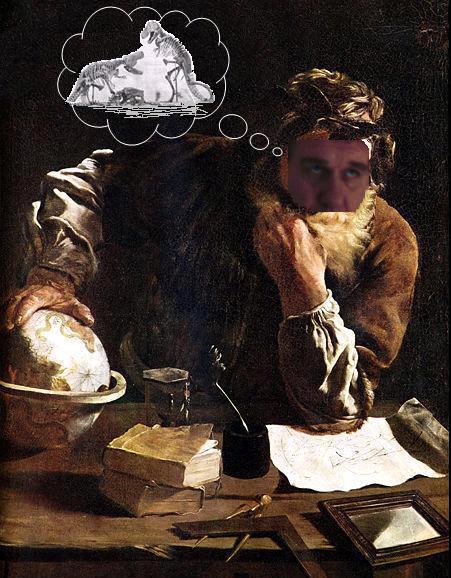1.0 Trivial theories
Benton reviews the history of extinctions and chronologically lists the proposals that have been
pitched in over the years. His paper is a must read for those wishing to come up to speed on the
subject.
The first thing you realize is that many frivolous theories have been thrown into the pile since the
discussion began over a century ago. Brainstorming is not evil per se, except that featherbrained
suggestions clutter the board and make it more difficult to focus on those with merit.
Extinction theories are like conspiracy theories. There are really only one or two that are in contention.
Trivial arguments enter the stream for devil's advocacy. More often, they have the ulterior motive of
getting the proponent's name in lights and nothing more. The devil's advocate contributes the idea
merely to be the first to have come up with it or because of the novelty or to draw attention, and not
because the proposal has a serious chance of explaining extinction. Petty ideas contribute noise.
They make it difficult to stay on topic.
Is egg-predation a valid extinction theory?
Of course not! But the casual participant takes the proposition at face value and places it on the par
with weighty ones. So you burn calories fighting this fire and get sidetracked from the relevant
discussion. Impressionable and gullible participants usually talk in circles or walk on tangents that
lead to dead ends. Superficial ideas pitched in for the sake of originality distract from the purpose at
hand, which is to zero in on Mother Nature's furtive agent. The effect of trivial proposals is to derail the
discussion.
- 2.0 Agent vs mechanism
The first rule a debater must learn is that an asteroid is an agent whereas evolution is a mechanism.
Some people instinctively equate the suddenness of extinction with a catastrophic act of God and
have a tendency to lean towards the former. Others are naturally drawn towards comprehensive
solutions and typically choose the latter. Is extinction a quirk of nature? Does it happen now and
then at the whim of God? Or is it a predictable process that will invariably affect all species?
Therefore, your predispositions and biases determine in great measure which theory you are going
to live with and may say more about you than about what truly caused the phenomenon.
- The second rule a participant must come to terms with is that extinction is a very complex subject.
Otherwise it would have become evident to all participants from the start. Simple solutions are
certainly wrong. The subtle process of extinction should be difficult to see and not be easily
deciphered with a one-liner. This explains why 100 years later we are still debating extinction like
the day the inter-generational meeting began.
| M. Benton, Scientific methodologies in collision: the history of the study of the extinction of the dinosaurs, Evolutionary Biology 24, (1990) 371-400. |
| Adapted for the Internet from: Why God Doesn't Exist |
| History of extinction theories |
Module main page: An asteroid did not cause the extinction of the dinosaurs
Pages in this module:
- 1. This page: Benton: The history of extinction theories
2. Alvarez: How does an asteroid justify selectivity?
3. Raup and Sepkoski: Periodic extraterrestrial agents?
4. Dewey and Keller: Volcanic gases?
5. Bakker: Diseases came through a land bridge?
6. So then, how did the T-Rex disappear?


| 100 years. 100 theories. Maybe I skipped one. |
- ________________________________________________________________________________________
- Copyright © by Nila Gaede 2008